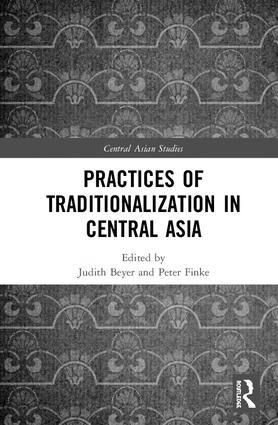
New edited volume in Routledge's Central Asian Studies series by Prof Judith Beyer and Prof Peter Finke
In this volume Judith Beyer and Peter Finke regard tradition as a practice that needs to be explored in its institutional and interactional context at a particular time, rather than as a reliable guide to the past: tradition can only be judged from the present; it is an interpretative concept, not a descriptive one. While the scholarly debate has so far centered on what tradition entails and what it does not, including the question of invention and ownership, less attention has been devoted to investigating how tradition is enacted, enforced, or motivated – in short, how it ‘gets done.’ In Central Asia, practices of traditionalization are closely related to the transformation of the socialist order and the emergence of highly stratified societies. This volume asks: When does tradition emerge as a line of argumentation, who are the actors invoking it and how is it being (materially) manifested?
